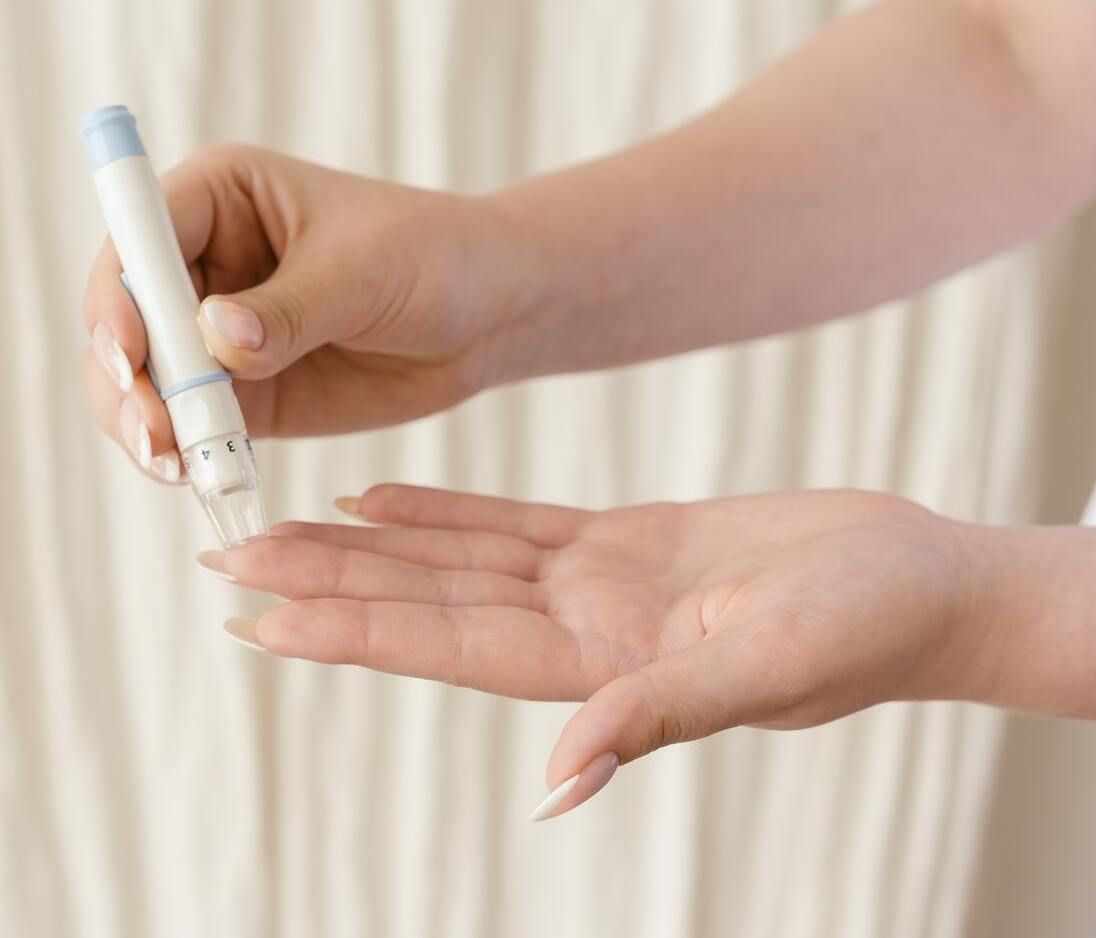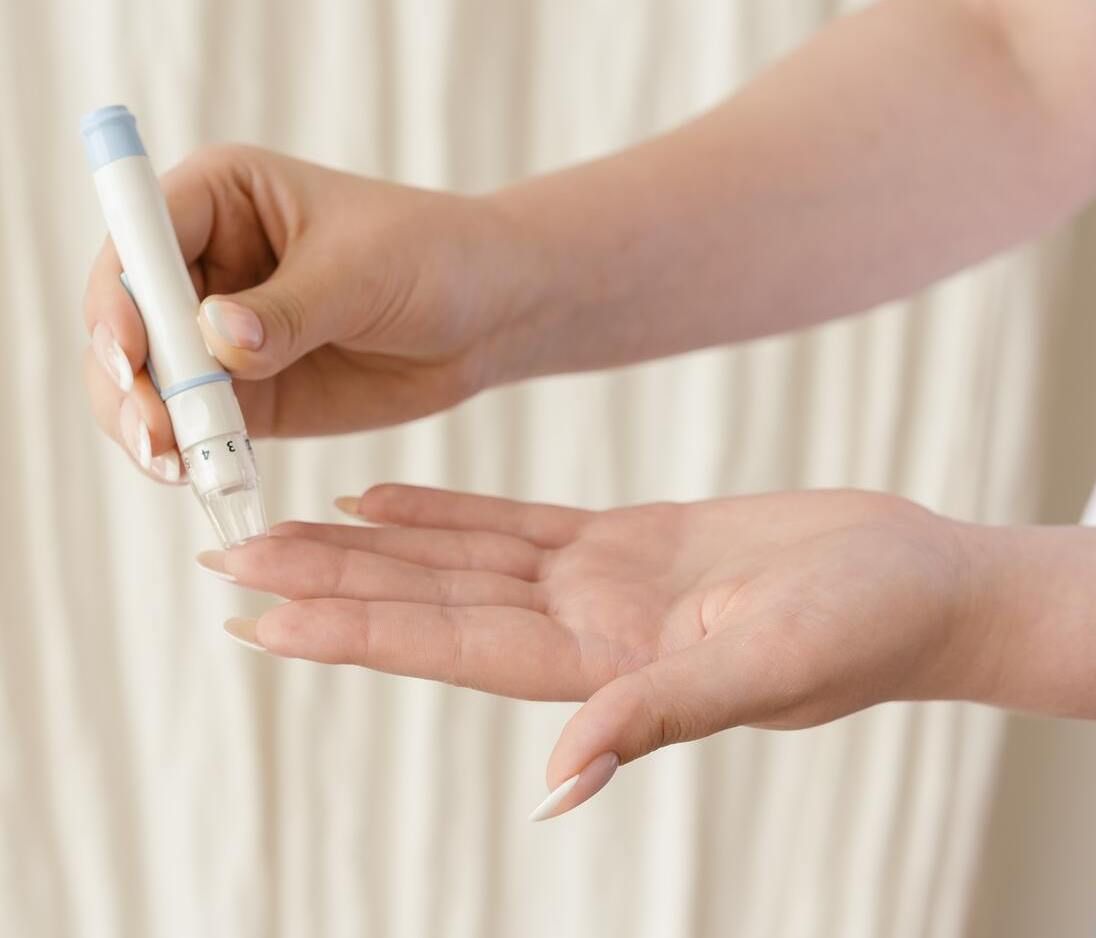Welcome to the ultimate guide to understanding blood sugar! In this article, we'll cover everything you need to know about blood sugar, its relationship to diabetes, normal blood sugar levels, factors that can affect blood sugar, and more.
Whether you're looking to maintain a healthy lifestyle or manage a medical condition, this guide will provide you with valuable insights to make informed decisions about your well-being.
What is Blood Sugar?
Blood sugar, also known as blood glucose, refers to the amount of sugar (glucose) present in your bloodstream. It serves as a crucial source of energy for your body's cells, powering your everyday activities. The blood glucose level in your body can vary throughout the day, influenced by factors such as the foods you eat, physical activity, and hormonal changes.
Does Blood Sugar Mean Diabetes?
Blood sugar levels and diabetes are closely related, but they are not the same thing. Blood sugar, also known as blood glucose, refers to the amount of sugar (glucose) present in your bloodstream at any given time. Glucose is a type of sugar that serves as the primary source of energy for your body's cells.
Diabetes, on the other hand, is a chronic medical condition that affects how your body uses glucose. There are two main types of diabetes: Type 1 diabetes and Type 2 diabetes.
Type 1 Diabetes
This is an autoimmune condition in which the immune system attacks and destroys the cells that produce insulin in the pancreas. Insulin is a hormone that helps regulate blood sugar levels by allowing glucose to enter cells. People with Type 1 diabetes require insulin injections or the use of an insulin pump to manage their blood sugar levels.
Type 2 Diabetes
This is a metabolic disorder characterized by insulin resistance, where the body's cells do not respond effectively to insulin. Over time, the pancreas may also produce less insulin. Type 2 diabetes is often linked to lifestyle factors such as obesity, physical inactivity, and genetics. It can sometimes be managed through lifestyle changes, oral medications, and, in some cases, insulin injections.
What are Normal Blood Sugar Levels?
Maintaining normal blood sugar levels is important for overall health, whether you have diabetes or not. The standard measurement for blood sugar is milligrams per deciliter (mg/dL). Here are the healthy ranges:
- Fasting (before meals): 70-99 mg/dL
- After eating (postprandial): Below 140 mg/dL
- Hemoglobin A1c (a three-month average): Below 5.7%

What is the Normal Sugar Level by Age?
Blood sugar levels can vary based on factors such as age, time of day, and whether a person has eaten recently. Generally, blood sugar levels are measured in milligrams per deciliter (mg/dL) in the United States. Here are the typical ranges for fasting blood sugar levels (measured after at least 8 hours without food) for different age groups:
For adults (18 years and older):
- Normal fasting blood sugar: 70-99 mg/dL
- Prediabetes (impaired fasting glucose): 100-125 mg/dL
- Diabetes (fasting blood sugar): 126 mg/dL or higher
For children and adolescents:
Blood sugar levels can vary based on age and development. The American Diabetes Association provides the following guidelines for fasting blood sugar levels in children and adolescents:
- Normal fasting blood sugar for children: Less than 100 mg/dL
- Prediabetes (impaired fasting glucose) in children: 100-125 mg/dL
- Diabetes (fasting blood sugar) in children: 126 mg/dL or higher
It's important to work closely with a healthcare provider to determine appropriate blood sugar targets for children, as these targets may differ based on factors such as age and the presence of other health conditions.
What Causes Blood Sugar Fluctuations?
Several factors can influence your blood sugar levels. Some of the key contributors include:
- Diet: The foods you eat directly impact your blood sugar. Foods high in carbohydrates can cause spikes, while balanced meals help maintain steady levels.
- Physical Activity: Exercise helps your body use glucose more efficiently, which can lead to temporary drops in blood sugar.
- Stress: Stress hormones can trigger a rise in blood sugar levels, even in people without diabetes.
- Medications: Certain medications, including steroids and some antipsychotics, can affect blood sugar levels.
- Illness: Infections and illnesses can lead to elevated blood sugar levels, requiring careful monitoring.
Remember that everyone's body is different, so it's important to work with your healthcare provider to determine the right strategies for managing your blood sugar levels effectively.
What are the Symptoms of High Blood Sugar?
High blood sugar, also known as hyperglycemia, occurs when the level of glucose in your blood rises above normal. This can happen due to various reasons, including poor diet, lack of physical activity, stress, and certain medical conditions. Recognizing the symptoms of high blood sugar is vital, as it allows you to take prompt action and prevent complications. Look out for these signs:
- Frequent Urination: If you find yourself visiting the restroom more often than usual, it could be a sign of high blood sugar. Excess glucose in the blood can lead to increased urine production.
- Increased Thirst: High blood sugar can cause dehydration, leading to an increased sensation of thirst. Your body tries to flush out excess sugar through urine, leading to fluid loss.
- Fatigue: Feeling unusually tired even after getting enough rest? High blood sugar can prevent your cells from receiving the energy they need, resulting in fatigue.
- Blurry Vision: High blood sugar levels can affect the fluid balance in your eyes, leading to temporary changes in your vision. If your vision becomes blurry, it's essential to address your blood sugar levels.
- Slow Healing: Ongoing high blood sugar can impact your body's ability to heal. If you notice cuts or sores taking longer than usual to heal, it might be linked to elevated glucose levels.
What Happens If Blood Glucose Level Becomes Low?
On the other end of the spectrum, low blood sugar or hypoglycemia occurs when your blood glucose level drops below the normal range. This can happen if you skip meals, engage in intense physical activity without adequate fuel, or take too much insulin or diabetes medication. Low blood sugar can have important consequences, so it's crucial to recognize the symptoms and take appropriate action:
- Sweating and Shaking: You might experience sudden episodes of sweating and trembling, as your body tries to regulate its glucose levels.
- Dizziness and Confusion: Low blood sugar can affect your brain function, leading to feelings of dizziness, confusion, and difficulty concentrating.
- Irritability: You might notice a sudden shift in mood, becoming irritable or anxious, which can be a sign of low blood sugar.
- Rapid Heartbeat: Your heart rate may increase when your blood sugar drops too low, as your body responds to the stress of inadequate glucose supply.
- Hunger: Feeling extremely hungry, even shortly after eating, could indicate low blood sugar levels. Your body is signaling the need for more fuel.

How to Check Blood Sugar at Home?
There are several ways to test your blood sugar levels, including self-monitoring blood glucose (SMBG) using a glucose meter, continuous glucose monitoring (CGM) and an A1C test. It's important to note that, before testing your blood sugar, it's always recommended to check with a healthcare professional for instructions, as testing methods and frequency can vary depending on the individual's case and the type of diabetes they have.
Blood glucose meter
A meter is the only gadget that requires a finger prick. This is the most generally accessible and least expensive choice.
Insert a test strip into the meter to use this instrument. You will pierce your finger to get a blood sample, which you will then put on the edge of the test strip to assess your blood sugar.
Glucometers are useful because they are tiny and portable, enabling them to be used anywhere. Your blood sugar readings are also precise and immediate.
Continuous glucose monitor (CGM)
You may also check your blood sugar using a continuous glucose monitor (CGM). Glucometers, on the other hand, can only monitor blood sugar when you test it.
In contrast, continuous glucose monitoring offers real-time measurements of glucose, or blood sugar, every few minutes. These devices entail the placement of a small sensor under your skin (usually in the abdomen).
This sensor detects your interstitial glucose level and transmits it to a pager-like monitor or an app on your phone. If your blood sugar level goes too high or too low, an alert will ring.
Despite the fact that continuous glucose monitoring devices embed a sensor under the skin, most need a finger prick at least once a day to calibrate the device.
Flash glucose monitor (Freestyle libre) system
Another method for testing your blood sugar is the Freestyle Libre system. While this approach has several characteristics with a CGM and a meter, it differs in one important way: it does not need a finger prick.
With the Freestyle Libre, you'll still have a little sensor under your skin. It differs from a CGM in that it does not provide continuous readings.
When you wish to check your blood sugar level, you'll use a reader to scan the sensor rather than pricking your finger like you would with a meter.
Urine test
Urine is another method for measuring blood sugar levels. This entails putting a test strip into your urine. However, test strips can only detect sugar in your urine and cannot offer a precise blood sugar value.
Why Should You Check Your Blood Sugar?
Blood sugar measurement gives valuable data for diabetes management. It can assist you with:
- Keeping track of how diabetes treatments affect blood sugar levels.
- Determining if your blood sugar levels are high or low.
- Keeping track of your progress toward your overall treatment objectives.
- Discovering how nutrition and exercise influence blood sugar levels.
- Recognizing how other variables, such as sickness or stress, influence blood sugar levels.
When Should You Check Your Blood Sugar?
Checking blood sugar, also known as blood glucose, is important for people with diabetes or prediabetes as it helps them manage their condition. It is also important for people without diabetes to check their blood sugar levels occasionally to check for prediabetes, a condition where the blood sugar is higher than normal but not high enough to be diagnosed as diabetes.
The American Diabetes Association recommends that people with Type 1 diabetes check their blood sugar at least four times a day, typically before meals and at bedtime. People without diabetes should check their blood sugar level occasionally, especially if they have a risk of developing factors for diabetes such as being overweight, having high blood pressure, or having a family history of diabetes.
Consult with your doctor to determine how often you should check your blood sugar levels.

Can I Test my Own Blood Sugar Levels?
You may check your blood sugar levels with a finger prick test or an electronic blood sugar monitor known as a flash glucose monitor or CGM. You may do this numerous times a day to keep track of your levels as you go about your day and figure out what to eat and how much medicine to take. Determine your optimal target range.
Diabetes is a chronic disorder that requires constant blood sugar monitoring throughout your life, but not everyone with diabetes needs this amount of monitoring. If you use certain diabetic medications, however, you should monitor your blood sugar regularly. If you're unsure if that's you, ask your healthcare team; they'll advise you on whether to check them yourself and how often.
Blood sugar testing is essential for diabetes treatment. Accurate findings may be obtained by using a meter or continuous glucose monitoring.













